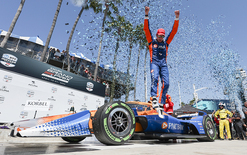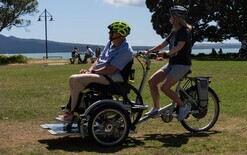Hydrogen trial looms for Defender

Jaguar Land Rover has announced it is developing a prototype hydrogen fuel cell electric vehicle (FCEV) based on the new Land Rover Defender as part of its goal to achieve zero tailpipe emissions by 2036.
Testing of the concept vehicle, which will generate electricity from hydrogen to power an electric motor, is scheduled to start this year.
The carmaker says hydrogen-powered FCEVs provide high energy density and rapid refuelling, and minimal loss of range in low temperatures, making the technology ideal for larger, longer-range vehicles, or those operated in hot or cold environments.
Development of the prototype also aligns with Jaguar Land Rover’s aim to have net zero carbon emissions across its supply chain, products and operations by 2039, which is part of its Reimagine strategy announced in May 2021.
Its engineering programme, known as Project Zeus, is part funded by the UK government and is designed to help engineers understand how to get the most from a hydrogen powertrain.
The prototype New Defender FCEV will begin testing towards the end of 2021 to verify attributes such as off-road capability and fuel consumption.
Ralph Clague, head of hydrogen and fuel cells for Jaguar Land Rover, says: “We know hydrogen has a role to play in the future powertrain mix across the whole transport industry, and alongside battery electric vehicles, it offers another zero-tailpipe emission solution for the specific capabilities and requirements of Jaguar Land Rover’s world class line-up of vehicles.”





